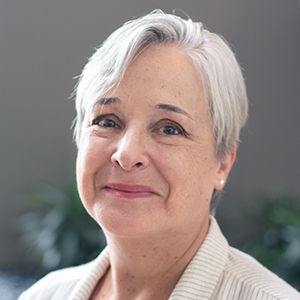Ending an elemental year
Readers of a certain age may remember Tom Lehrer’s song “The Elements,” in which the then-Harvard math professor and musical satirist patter-sang, a la Gilbert and Sullivan, the name of every element in the periodic table.
When I was a musical theater nerd in high school, I co-directed a musical revue in my senior year. The other directors and I thought we had the whole thing precast, but during auditions, a hitherto unremarkable singer bowled us over with her rendition of this serious tongue twister. (You can hear for yourself how impressive this was.) We borrowed a lab coat and a wall-sized copy of the periodic table from the school’s science department to hang behind her. At every performance, that song brought the house down. The big chart disappeared after closing night, and one of my fellow directors either had to pay for it or forfeit her diploma.
That was the last time I thought about the periodic table until an ASBMB Today planning meeting late last year when Quira Zeidan, the society’s education and public outreach coordinator, told us that 2019 was the 150th anniversary of the year Dmitri Mendeleev first published his tabular display of the elements.
She wasn’t just sharing science trivia. In her heart of hearts, Quira is a teacher, and she offered to write a series of articles for ASBMB Today highlighting elements of significance in the biochemical realm.
There’s nothing an editor likes better than the promise of a timely series (and guaranteed content), so I was delighted, but Quira gave us something more than that. As regular ASBMB Today readers know, she has provided a wonderfully coherent series of lessons that clearly explain everything from where the elements originate to their roles in human health. Every month, I’ve looked forward to learning something new from this series. And in this issue, with nickel and zinc, I’m sad to see it end.
This month may mark the end of the (bio)chemical elements in ASBMB Today, but plans are afoot to build educational programs around these 11 articles — complete with experiments. If this resource would be useful to you or any of your colleagues, contact Quira.
Thanks to all our readers for celebrating the International Year of the Periodic Table with us — and thank you, Quira, for being as cool a teacher as Tom Lehrer.
Enjoy reading ASBMB Today?
Become a member to receive the print edition four times a year and the digital edition monthly.
Learn moreGet the latest from ASBMB Today
Enter your email address, and we’ll send you a weekly email with recent articles, interviews and more.
Latest in Opinions
Opinions highlights or most popular articles

Women’s health cannot leave rare diseases behind
A physician living with lymphangioleiomyomatosis and a basic scientist explain why patient-driven, trial-ready research is essential to turning momentum into meaningful progress.

Making my spicy brain work for me
Researcher Reid Blanchett reflects on her journey navigating mental health struggles through graduate school. She found a new path in bioinformatics, proving that science can be flexible, forgiving and full of second chances.

The tortoise wins: How slowing down saved my Ph.D.
Graduate student Amy Bounds reflects on how slowing down in the lab not only improved her relationship with work but also made her a more productive scientist.

How pediatric cataracts shaped my scientific journey
Undergraduate student Grace Jones shares how she transformed her childhood cataract diagnosis into a scientific purpose. She explores how biochemistry can bring a clearer vision to others, and how personal history can shape discovery.

Debugging my code and teaching with ChatGPT
AI tools like ChatGPT have changed the way an assistant professor teaches and does research. But, he asserts that real growth still comes from struggle, and educators must help students use AI wisely — as scaffolds, not shortcuts.

AI in the lab: The power of smarter questions
An assistant professor discusses AI's evolution from a buzzword to a trusted research partner. It helps streamline reviews, troubleshoot code, save time and spark ideas, but its success relies on combining AI with expertise and critical thinking.

